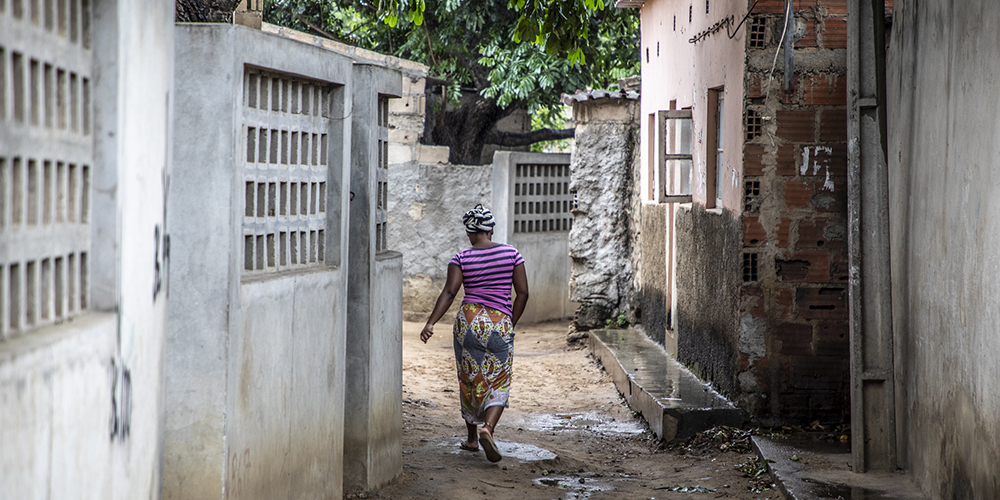
Monitoring progress towards the Sustainable Development Goals (SDGs) in cities worldwide demands reliable, detailed information on life in different parts of the urban area. The global indicator framework for the SDGs includes 231 unique indicators that permit countries to track and compare rates of change on topics such as ‘Proportion of urban population living in slums, informal settlements or inadequate housing’ (indicator 11.1.1) or ‘Proportion of municipal solid waste collected and managed in controlled facilities out of total municipal waste generated by cities’ (11.6.1).
However, countries are encouraged to identify indicators that best reflect their own national challenges, and to localize monitoring in a way that suits their differing contexts. Policy-makers in Mozambique have drawn on findings from the LIRA2030 research programme in order to inform local monitoring and evaluation for their Voluntary National Review (VNR), which will be presented at the July 2020 UN High-level Political Forum on Sustainable Development later this week.
As LIRA2030 grantee Sylvia Croese explains:
“Throughout our research process we were in touch with relevant urban stakeholders in Mozambique, including local UN representatives, the National Association of Mozambican Municipalities and other members of Mozambique’s National Reference Group on SDGs. This led to our participation in a training on SDGs for municipal government officials in Maputo in November 2019. The team responsible for the VNR drafting process was present at the workshop and expressed interest in our work”.
Croese is Principal Investigator for the LIRA2030 project ‘Co-producing urban knowledge in Angola and Mozambique through community-led data collection: towards meeting SDG 11’, which is cited in Mozambique’s VNR as evidence for the interpretation of SDG indicators in peri-urban neighbourhoods in Maputo, the country’s capital. Highlighting the transdisciplinary nature of the research, which brought together scholars, municipal administrators and community representatives, the VNR notes that the LIRA2030 study points to the importance of going beyond quantitative measurement – for example on access to water – to consider qualitative dimensions such as price, quality, safety, inclusiveness and sustainability that condition levels of access to water. The Review also echoes findings from previous ISC publications in noting interlinkages between the SDGs. It states that the goal for sustainable cities and communities (SDG 11) “cannot be attained without the achievement of objectives and targets related to ending poverty (SDG 1), decent employment and economic growth (SDG 8) or infrastructure (SDG 9), requiring holistic, cross-sectoral and multiple stakeholder interventions”.
Voluntary National Review (VNR) is a process by which countries assess and present the progress they’ve made in working towards the SDGs. The aim is to provide an overview of SDG implementation in each country, and to help accelerate achievement of the goals through sharing knowledge and best practices. It’s intended to be a learning process between countries, something which Croese supports:
“Throughout our project we tried to promote and facilitate learning and exchanges between the two countries and cities. Our research partner in Angola, Development Workshop, is now part of a working group that has been set up in preparation for the elaboration of Angola’s first VNR and we are working to facilitate learning of the lessons from Mozambique to inform the process in Angola.”
The Voluntary National Review process can be an opportunity for researchers to see their work have real impact with national policy-makers, and to help provide evidence on sustainable development that is shared on the global stage. Croese advises:
“It is important for scientists to familiarise themselves with the actors and mechanisms involved in local VNR processes. While there are still shortcomings in the extent of consultation and participation of civil society, academia and local governments in the VNR processes, often the VNR’s are prepared under a lot of time pressure. Being proactive, reaching out to those responsible and being able to communicate your research in an accessible way increases your chances of being heard”, advises Croese.
The process of preparing VNRs is different in each country, and there’s no one-size-fits-all approach to involving the scientific community. As Croese notes:
“These processes need strengthening and should not be limited to a one-off report and engagement but represent an on-going and iterative process”.
Leading Integrated Research for Agenda 2030 in Africa (LIRA2030) is a 5-year programme that seeks to increase the production of high-quality, integrated (inter- and transdisciplinary), solutions-oriented research on global sustainability by early career scientists in Africa. In line with the Council’s aim of supporting and communicating science that’s relevant to crucial policy issues, the LIRA2030 programme aims to take in account the diversity of scientific and societal views of the sustainable development challenges in African cities, through transdisciplinary research, and to increase the use of scientific evidence as a basis for urban policy development and practice.
For more information on the LIRA2030 project ‘Co-producing urban knowledge in Angola and Mozambique through community-led data collection: towards meeting SDG 11’, read our blog Grounding stats and the SDGs in co-produced local data, and watch the video interview with Sylvia Croese below:
Photo: Water and Sanitation Collaborative Council via Flickr.